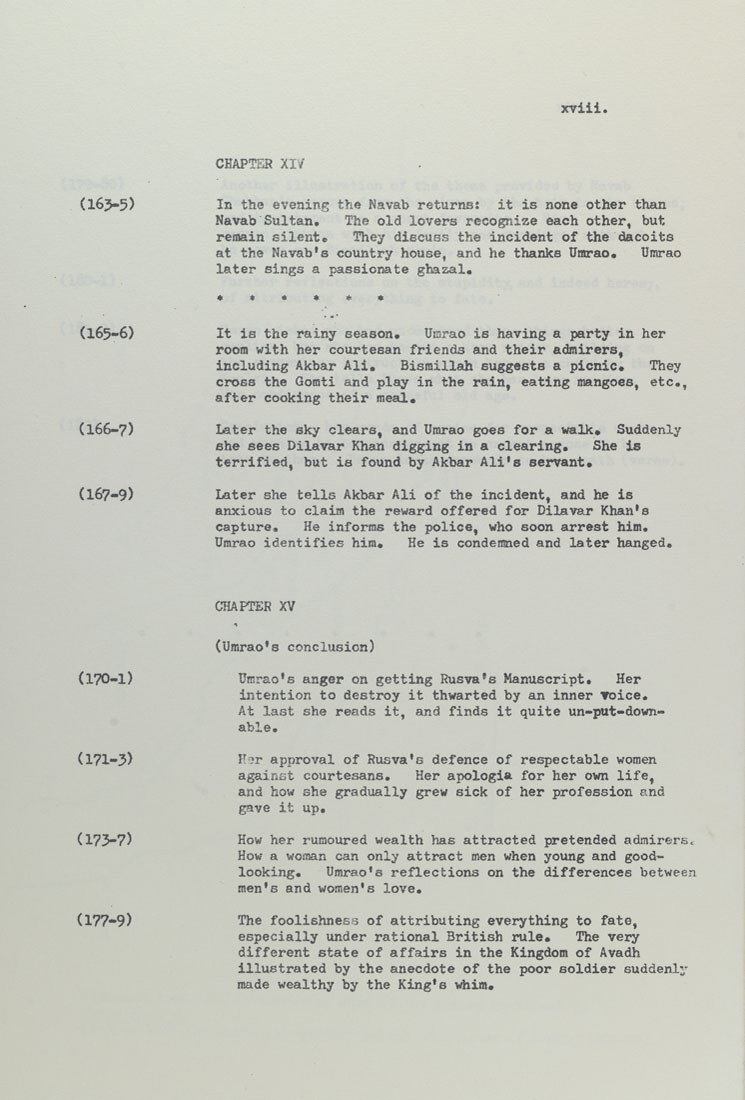CMPTFM XIV
xviii.
(163-5)
In the evening the Navab returns: it is none other than
Navab Sultan* The old lovers recognise each other, but
remain silent, Tliey discuss the incident of the dacoits
at the Navab's country house, and he thanks Umrao, Umrao
later sings a passionate ghazal.
(165-6)
(166-7)
(167-9)
It is the rainy season, Umrao is having a party in her
room with her courtesan friends and their admirers,
including Akbar All, Bismillah suggests a picnic. They
cross the Qomti and play in the rain, eating mangoes, etc*,
after cooking their meal.
Later the sky clears, and Umrao goes for a walk. Suddenly
she sees Dilavar Khan digging in a clearing. She is
terrified, but is found by Akbar All's servant.
Later she tells Akbar Ali of the incident, and he is
anxious to claim the reward offered for Dilavar Khan's
capture. He informs the police, who soon arrest him,
Umrao identifies him. He is condemned and later hanged*
(170-1)
(171-3)
(173-7)
(177-9)
CHAPTER XV
(Umrao's conclusion)
Umrao's anger on getting Rusva'e Manuscript* Her
intention to destroy it thwarted by an inner voice*
At .last she reads it, and finds it quite un-put-down«
able*
Hr»r approval of Rusva's defence of respectable women
againot courtesans* Her apologia for her own life,
and how she gradually grew sick of her profession e.nd
gave it up.
How her rumoured wealth has attracted pretended admirers*
How a woman can only attract men when young and good-
looking* Umrao's reflections on the differences between
men's and women's love*
The foolishness of attributing everything to fate,
especially under rational British rule. The very
different state of affairs in the Kingdom of Avadh
illustrated by the anecdote of the poor soldier suddenly
made wealthy by the King's whim.
|








